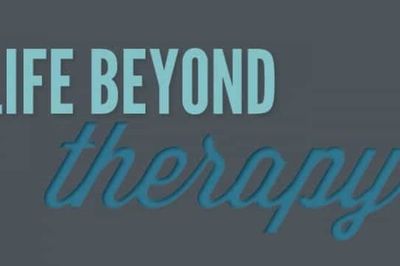Dear Michael:
My partner and I have been together for about 3 year’s now. At the beginning the sex was great, now it’s almost non-existent, but we still love each other very much. A while back we started having 3-ways with other guys, and that was cool. But, in the last few months, he told me he’s not into those anymore and he wants to have an open relationship where each of us does our own thing sexually. This isn’t my preference, but I went along with it (I’m not very assertive). Now he’s never home; when he’s not at work, he’s almost always out having sex. On weekends, he’s on the computer for 3-4 hours a day looking to hook up. It feels like our relationship is falling apart. Am I married to a sex addict?
Unloved and unlaid in Little Italy
Dear U&U:
I get a lot of questions about sex addiction. Unfortunately, it is an increasingly popular topic. Your letter mentions several problems: It’s hard for you to be assertive, your boyfriend’s having sex with other people and you’re not thrilled about it, your relationship feels like it’s falling apart, and you wonder if you’re married to a sex addict.
Does your partner have a sex addiction? I define sex addiction as sexual behavior that habitually interferes with a person’s well-being. Any sexual activity that “runs” us can be an addiction. Does your partner’s desire for sex interfere with the health of your relationship? It’s not sex outside of a relationship that is destructive, it’s WHY the person is having sex with (so many) other people. If the two of you are happy with non-overlapping sex lives, then great. But, it sounds like you’re not.
With the easy availability of Internet sex and hook-up sites, many a man and woman have be tempted away from their partners. And, you may ask, why not? If you’re horny and alone and your lover’s asleep so early (again) or at work, is there harm to getting off over the Internet? Look at your motivation and the frequency of the behavior: if your boyfriend can’t ignore the desire for sex and feels like his genitals are telling him what to do (and not vice versa), then he may have a sex addiction. Here are some questions to ask him:
Can you turn down sex or do you have it any time you can get it?
Do you spend large amounts of time looking for sex?
Do you panic when you think that you may not have sex today/tonight?
Do you put yourself at risk as a result of your sexual activities?
Does your sex life interfere with your job, relationship or being with friends?
How do you approach your partner if you think he/she has a sex addiction? Very gingerly. Imagine that your roles were reversed and he was confronting you with upsetting behavior: how would you like to be approached? What would turn you off or make you defensive? The same is probably true for him. If you are going to talk with him about your concerns, be honest, loving and respectful. Tell him your concerns about him, you and your relationship.
If your boyfriend is willing, he might consider groups and/or individual therapy to help him regain control of his sex life. He can Google “sex addiction” and choose from a lot of options, or find out about local meetings of “Sex and Love Addicts Anonymous.” SLAA uses a 12-step model to help people who have sex addictions; their meetings are free and visitors/guests are not allowed.
You said it’s hard for you to be assertive. Whether your boyfriend has a sex addiction or not, find a way to talk with him about your sex life. Be assertive: tell him what you would like. See if the two of you can find mutual satisfaction and keep your relationship from “falling apart” (your words).
Whether you’re married to a sex addict or not, it sounds like your relationship needs a tune-up. Either talk it out yourself or get support from friends or a mental health professional.
If your relationship is worth working for, take action.
Michael Kimmel is a licensed psychotherapist and life coach who specializes in helping LGBT clients achieve their goals and deal with anxiety, depression, grief, sexually addictive behavior, coming out, relationship challenges and homophobia. Contact him at lifebeyondtherapy.com
